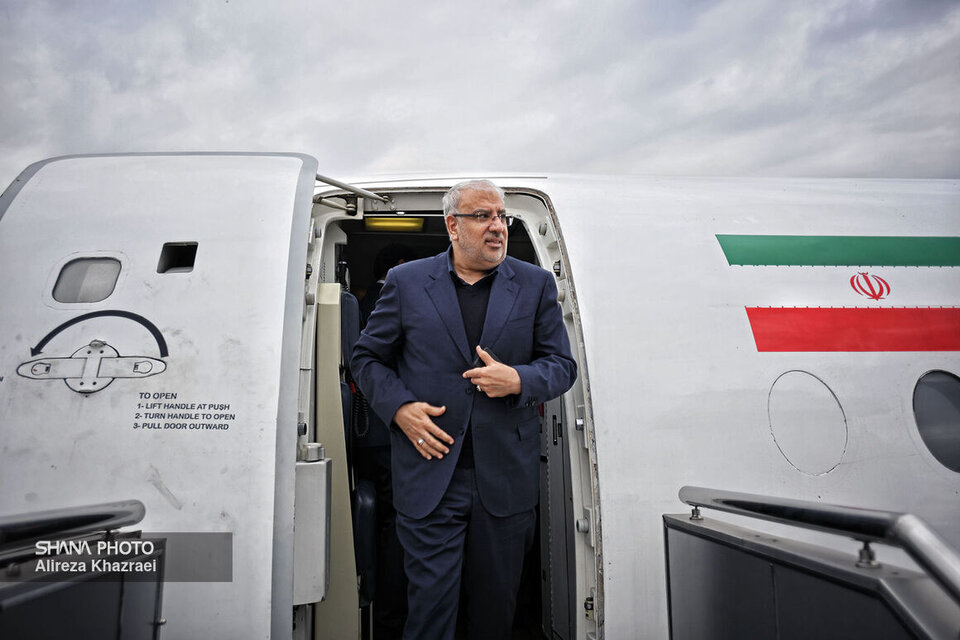A High-Level Ad Hoc Working Group meeting and an Extraordinary Ministerial Meeting to be attended by GECF member states’ oil and energy ministers, including Owji, will be held prior to the summit slated for March 2, during which the essential documents, including the declaration, will be prepared.
A number of important side events will be also held in Algeria. The headquarters of GECF’s Gas Research Institute (GRI) will open during an official ceremony, the latest edition of the GECF Global Gas Outlook will be unveiled, exemplary individuals and institutions will be awarded, and a ceremony for signing memorandums of understanding (MoUs) with the African Energy Commission (AFREC) and the Economic Research Institute for ASEAN and East Asia (ERIA) will be held.
On Saturday, Iran's Deputy Oil Minister for International Affairs and Trade Ahmad Asadzadeh said, “Given the great efforts and follow-up made by the Department for OPEC Affairs and Relations with Energy Communities to publicize Iran’s achievements amid sanctions, the Research Institute of Petroleum Industry (RIPI) has been selected and will receive a GECF award during the summit.”
GRI has a scientific-technical committee comprising the GECF member states’ representatives, which has started work before the institute’s official inauguration, mentioned the deputy, adding the committee has so far studied 30 plans submitted by the member states and picked five to implement.
Among the selected plans is one of the five presented by Iran under the title “Plan for Flare Gases Management and Collection”, said Asadzadeh, adding GRI has given the first priority to the Iranian plan.
Heading a high-ranking economic and political delegation, Iran’s President Seyyed Ebrahim Raeisi will leave Tehran for Algiers on Saturday to attend the summit at the official invitation of his Algerian counterpart Abdelmadjid Tebboune.
Raeisi will deliver a speech at the summit to raise Iran’s stances on strategies and policies of GECF for safeguarding its member states’ interests, promoting their cooperation on the natural gas industry’s development and its role in providing energy security, and investing more in the sector, the deputy oil minister continued.
The president’s trip to Algiers is also aimed at expanding relations with Muslim and like-minded states and boosting cooperation with regional and international organizations and unions.
Raeisi’s trip to Algeria is the first visit by an Iranian president to the North African country in about 14 years.
The GECF Summit is held every two years. Doha, the capital of Qatar, hosted the 1st GECF Summit in 2011; Moscow, the capital of Russia, held the 2nd edition in 2013; Tehran, the capital of Iran, was host to the 3rd summit in 2015; Santa Cruz, Bolivia, was the venue of the 4th summit in 2017; Malabo, the capital of Equatorial Guinea, held the 5th summit in 2019; and Doha hosted the 6th edition in 2022.
Based on an initial proposal made by Iran, the Gas Exporting Countries Forum was established by Iran, Russia, Qatar, and other gas exporting states on December 23, 2008.
Algeria, Bolivia, Egypt, Equatorial Guinea, Iran, Libya, Nigeria, Qatar, Russia, Trinidad and Tobago, the UAE, and Venezuela are the GECF members and Angola, Azerbaijan, Iraq, Malaysia, Mauritania, Mozambique, and Peru hold the status of observers.
With its current number of member states, the GECF enjoys a dominant position on global energy markets and among international energy organizations. Together, they represent 69% of the world’s gas reserves, 39% of the marketed production, and 40% of global gas exports. Moreover, GECF member countries collectively account for more than half of the world liquefied natural gas (LNG) exports (51%).
Iran will host the 8th Gas Exporting Countries Forum Summit of Heads of State and Government in 2027.


Your Comment